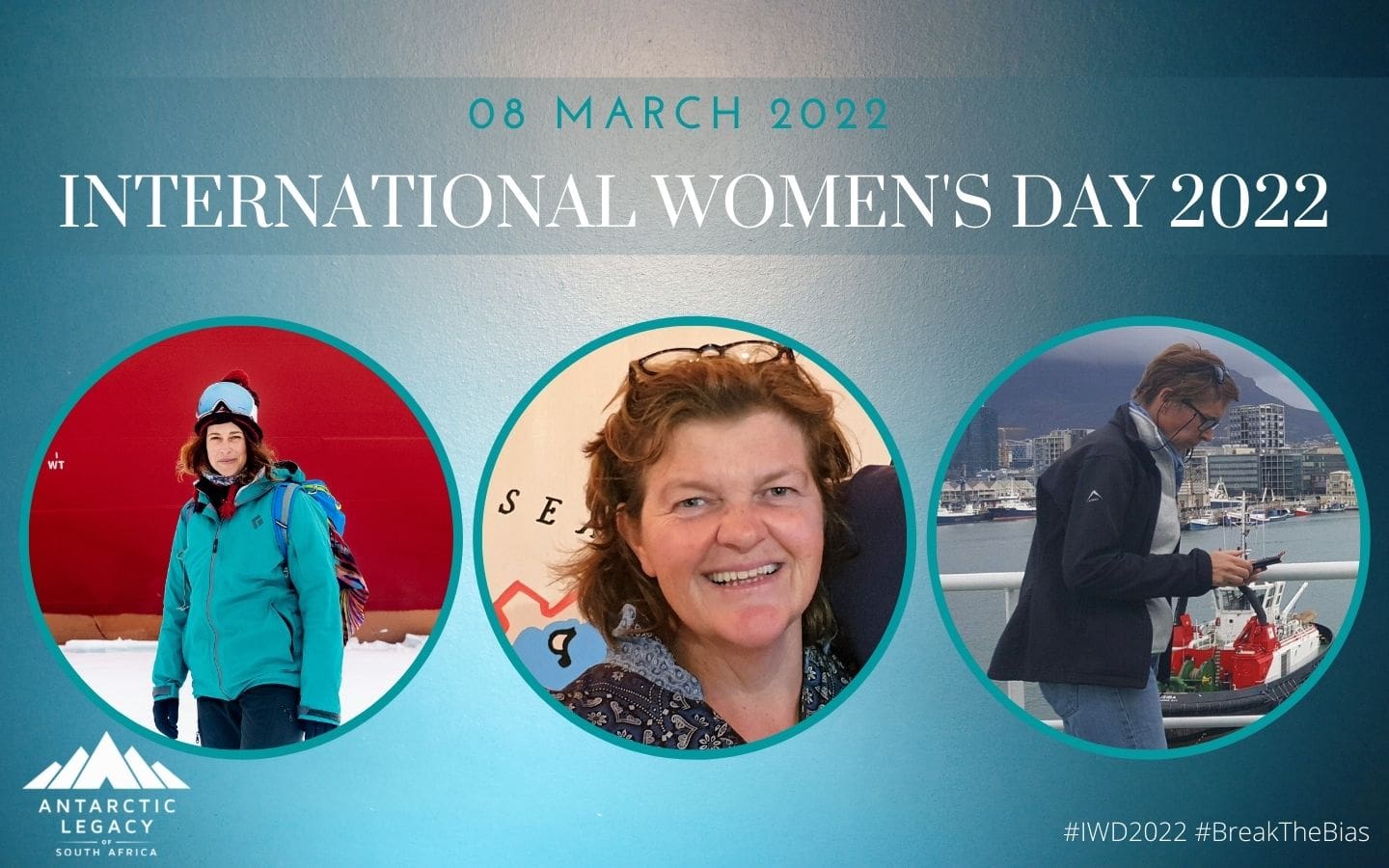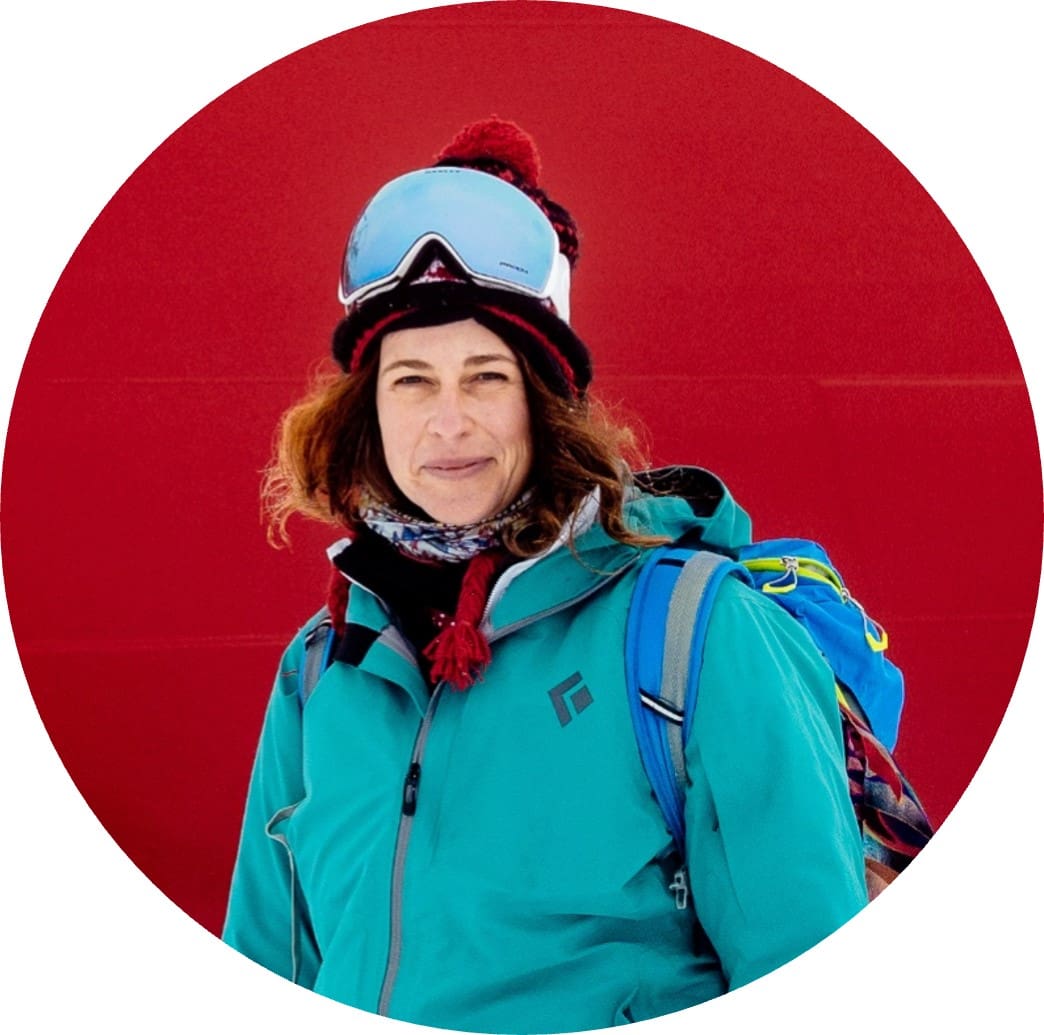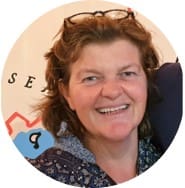The theme for this year’s International Women’s Day is “Break the Bias”.

This year we are featuring three inspiring women within the South African National Antarctic Programme. They are leaders in their fields and represent South Africa on an international level.
 Prof Annie Bekker – Stellenbosch University
Prof Annie Bekker – Stellenbosch University
Professor in Engineering, Director of the Sound & Vibration Research Group, and currently on the international Endurance 22 expedition (Antarctica).
“My job is about applying maths and science to technology… discovering and searching for new things. It is sometimes difficult, it takes long hours, breakthroughs can be incremental… and many times the belief, momentum, and enthusiasm for success have to come from within myself… Today, I love my job and the hard work to this point is absolutely worth it. I could not get here without encouragement, love, and mentorship in key moments. I cannot continue without the support of my family, the example of my colleagues, or the curiosity of my students – their excellence and hunger for their own new frontiers of discovery.
This is your life. Invest in your education. Believe in yourself, try, try again, never give up. Be hungry to learn. Sharpen your skills. Absorb all that is positive around you. Find mentors. Accept responsibility. Rebound from failure. Celebrate success. Be brave. Dream”.
Check out the Sound & Vibraton Research Group website: svrg.sun.ac.za.
Read more about Annie’s work and adventures here.
 Prof Isabelle Ansorge – University of Cape Town
Prof Isabelle Ansorge – University of Cape Town
Head of the Oceanography Department at UCT and mastermind behind South Africa’s first class afloat – SEAmester.
Isabelle Ansorge is an observational oceanographer, Professor, and first female Head of the Oceanography Department at the University of Cape Town. Having built an observational oceanography career both nationally and internationally, Prof. Ansorge’s interests lie in Indian, Atlantic, and Southern Ocean dynamics that include Southern Ocean eddy transports of heat and salt, frontal dynamics, and variability in the Antarctic Circumpolar Current and its effects on Subantarctic Islands such as Marion Island. Another passion of Isabelle’s is the shipboard training of postgraduate students from all over South Africa and she is the mastermind behind the SEAmester Floating University programme. SEAmester provides an incredible teaching and research platform for South African early-career scientists and lecturers alike. Prof. Ansorge’s list of affiliations is a testament to her extensive experience in the field including being a committee member of the Scientific Committee on Antarctic Research (SCAR), as a member of the start-up committee for the Southern Ocean Observing System (SOOS), as an Executive Bureau Member of the International Union for Geodesy and Geophysics (IUGG) and formally the vice-president of the International Association for Physical Sciences of the Oceans (IAPSO).
Check out the SEAmester website: seamester.co.za.
Read more about Isabelle here.
 Prof Bettine van Vuuren – University of Johannesburg
Prof Bettine van Vuuren – University of Johannesburg
Professor of Zoology, Director of the Centre for Ecological Genomics and Wildlife Conservation, and Chair of the South African Committee for the Scientific Committee on Antarctic Research (SANC for SCAR).
“The first thing to say is that I believe there is nothing that any person can’t do if they apply their mind (and time) to it. We often set our own ceilings based on general beliefs that society or others impose on us, and it is crucial that we break through these (non-real) boundaries. STEM fields are a case in hand. This is especially true for women, who traditionally were seen as homemakers or child-carers. In STEM specifically, fields such as mathematics, physics, and engineering, and traditionally more field-based disciplines such as zoology, botany, or oceanography, are seen as more suited to men (either because women were not traditionally considered as analytically strong, capable to work in the field, or for that matter, be away from home for any period of time). It is critical that any person (both men and women) should carefully consider what they enjoy, what their specific strengths are (be that a STEM career for a woman, or as a childcarer/homemaker for a man), and then pursue that with all their strength and passion. Personally, I was initially directed into a field that I had no interest in (because I could not answer questions asked re where I would work if my husband lived in a small town), and from a personal perspective I strongly urge and support women that want to step out of the usual/ typical / what is expected from you by society and follow what they are passionate about”.
Follow Bettine on Twitter (Click here).
You can also visit her website: molzoolab.co.za.
Meet the SANC for SCAR committee here.
Read more about Bettine here.
Image of Prof Bekker supplied by: James-John Matthee.


 Prof Annie Bekker – Stellenbosch University
Prof Annie Bekker – Stellenbosch University Prof Isabelle Ansorge – University of Cape Town
Prof Isabelle Ansorge – University of Cape Town




